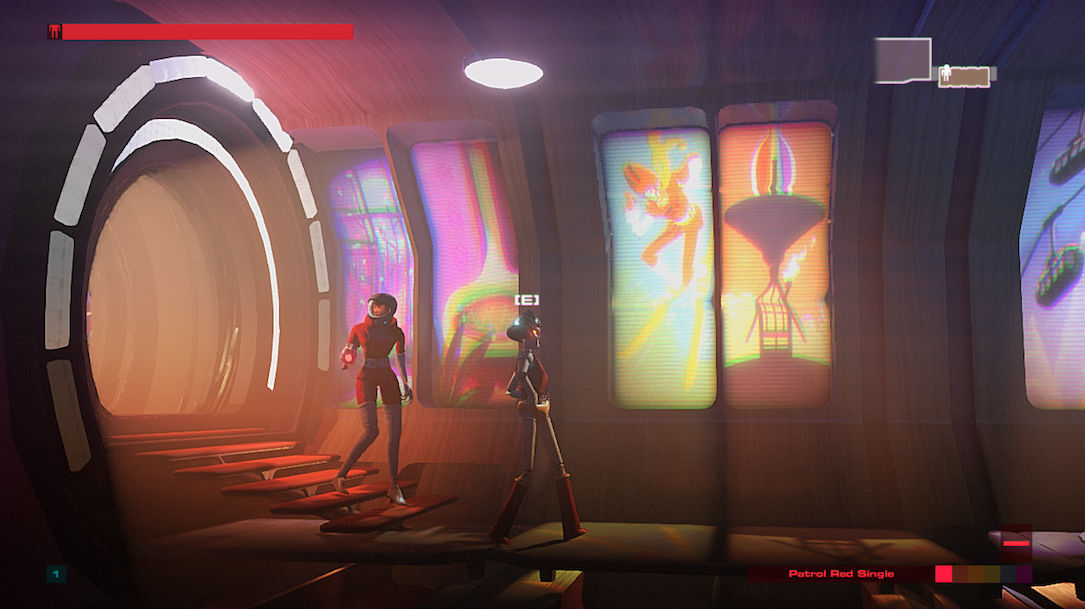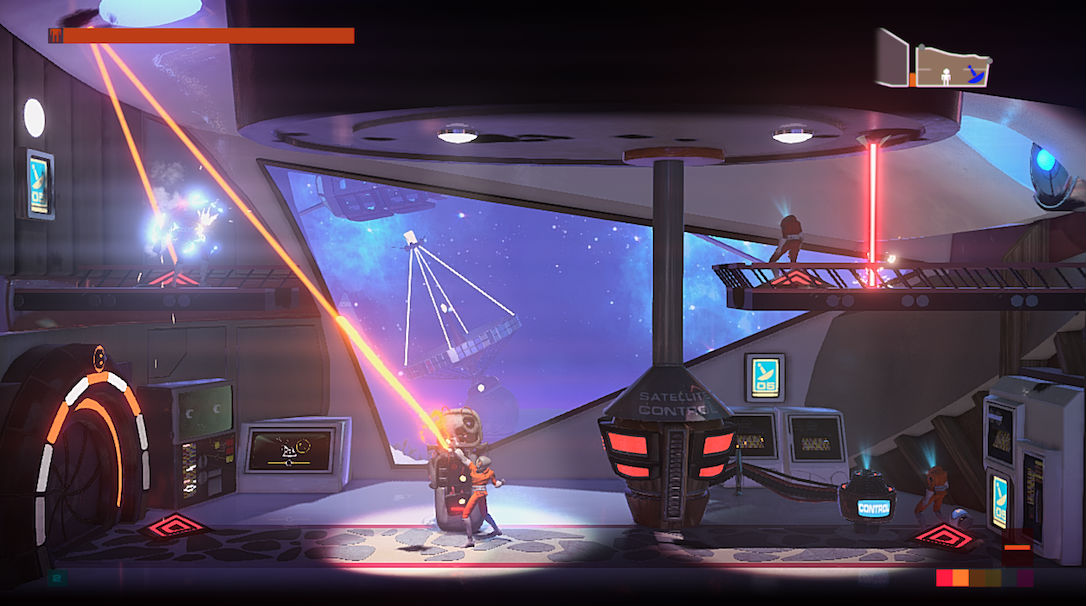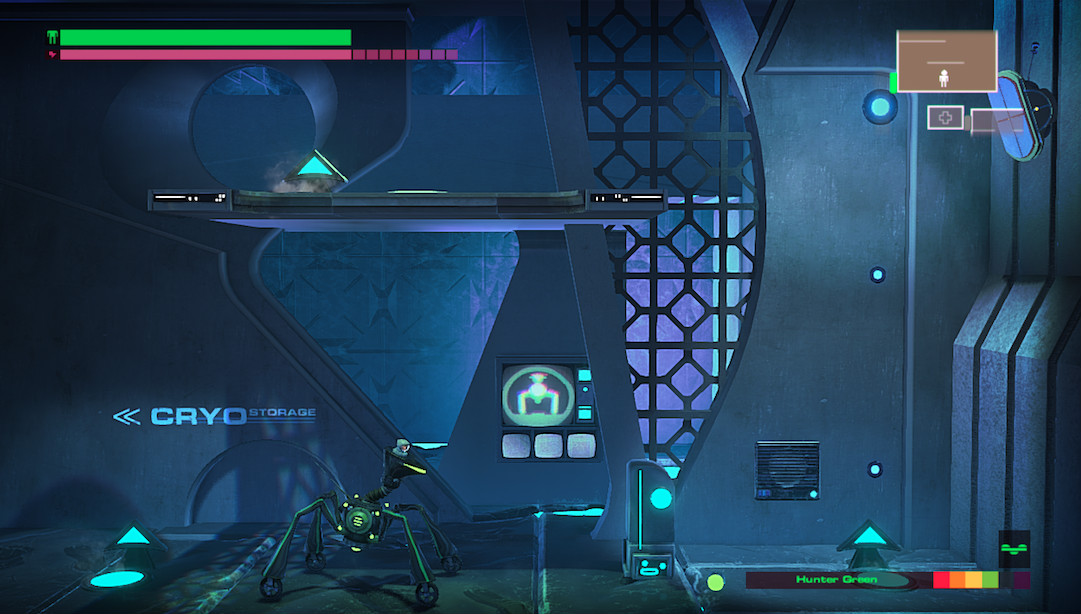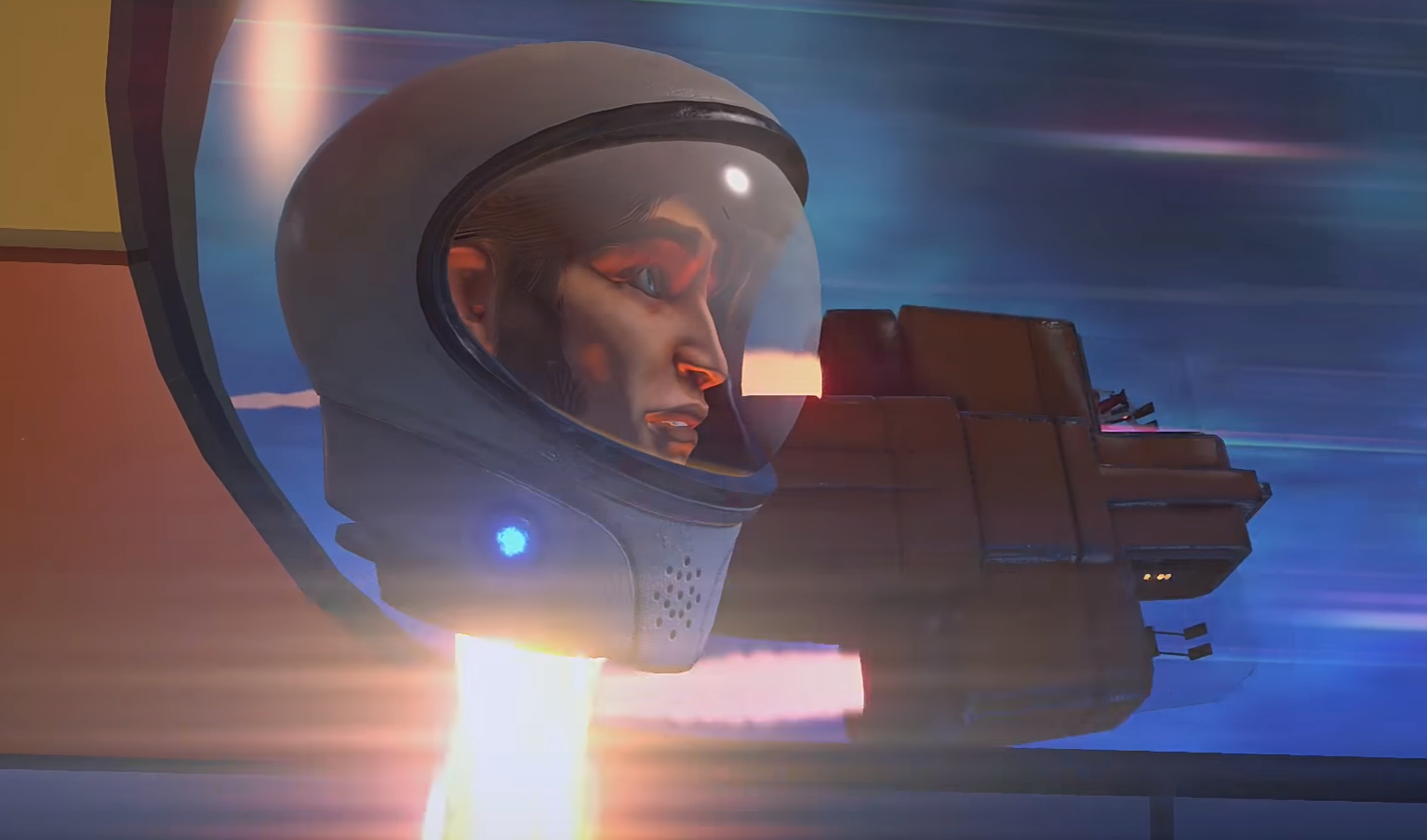Our Verdict
Not as unique as you’d perhaps expect given the premise, but still a very stylish, characterful and funny adventure.
PC Gamer's got your back
What is it? A gear-gated action-adventure in the Metroid vein.
Expect to pay: £15/$20
Developer: Double Fine
Publisher: Adult Swim Games
Reviewed on: Intel Core i5-4440 CPU @ 3.1GHz, 8GB RAM
Multiplayer: None
Link: Official site
Weirdness has rarely felt quite so lavish. Headlander is an odd little game, but it’s comfortably one of the most handsome you’ll play all year. Actually, fabulous is probably a better word to describe its sumptuous retro-futurist look, which draws equally from the visual language of pulp sci-fi and ‘70s disco. By the end, you’ll probably wish you lived there.
Inevitably, all is not well in this effortlessly stylish future utopia, but to reveal more would be to spoil the mystery. Suffice to say that you appear to be the last human to exist in physical form, with one minor caveat: you’re just a head. You can’t speak, perhaps because there’s not much of you below the chin, and you have a jet thruster where your larynx should be. To navigate, you’ll have to fly your tiny head around until you find a robot body, whereupon you’ll vacuum its head off and replace it with your own.
Superficially, it’s a similar deal to director Lee Petty’s last game, the inventive Stacking, insomuch as you end up inhabiting a variety of bodies to progress. But rather than solving puzzles, you mostly use your powers to gain clearance to enter high security areas within the city: a neat in-fiction excuse for a gating mechanic. That means taking control of the colour-coded Shepherd forces that have been alerted to your presence. It’s easy enough to decapitate the reds, but the violent violets you’ll encounter later are another matter.

The need to assume control of an intact body gives combat a different rhythm from other action-exploration games. Precision should be your first priority, and even when you’ve got a body to call your own it’s rarely wise to just blast away: take enough damage and your torso will explode, so it pays to keep at least one potential replacement in good nick. You can take cover behind various objects, and fine-tune your aim while doing so, with a thin line indicating the trajectory of your shots, including rebounds off walls and scenery. It’s a bit like lining up a trick shot in snooker, though professional snooker players have probably never had to face a barrage of laser fire while attempting to get the white ball behind the baulk line.
That changes a little as the game goes on and Shepherds are more aggressively keen to hold onto their heads, swiping sharply as you hover above them and firing more powerful weapons whose beams ricochet for longer. Negotiating a path through the chaos can be tricky, so you’ll need to seek out helmet augmentations to survive, ripping off spherical covers—the slight resistance as you pull makes this a satisfyingly tactile process each time—to head into ducts holding permanent buffs and energy pickups.
You can spend the latter at any time on a range of new abilities. There’s a shield that not only protects you from energy barriers and incoming lasers, but deflects them, too—and it can be upgraded to cover your rear (or, rather, the back of your head). After a while, you’ll be able to headbutt a Shepherd to instantly remove its head and replace it with your own, or hack one to turn it into a headless minion to fight alongside you. Though this means you have more options at your disposal, the combat gets messier and less interesting as a result. It’s easier to kill, yes, but it’s also easier to be killed: in larger rooms with increased volumes of high-level enemies, it can be hard to keep track of your diminutive noggin.

It’s disappointing, too, that the skill tree mostly reverts to genre type - improved thrust, a charge shot, additional melee damage, quicker health recovery. And if the unusual method of locomotion adds some spice to exploration, after a while it’s a bit of a pain to have to keep swapping heads to get anywhere. This is most noticeable whenever you need to use a lift. You’ll guide your torso onto the platform, pop off, attach it to the lift controls and ride it down, stopping intermittently to pop back onto your body and shoot Shepherds and camera turrets before resuming your journey.
That enticing central gimmick is used most inventively for one-off gags and set-pieces than anything particularly elaborate. You’ll take part in a competitive future sport that reimagines chess as a riotously violent shoot-out with quivering pawns, prancing knights and rolling rooks with iron fists, and that’s immediately followed by a creative, polarity-switching boss fight. Later, Double Fine applies a woozy visual effect to a dreamlike slo-mo shootout set to a swooning musical number. Elsewhere, you can hijack a civilian’s body and throw some shapes to the music, guide a robot dog back to its owner, make a small cleaning bot fart out dust or drag around a female head to fool the security camera preventing you from accessing an alternate route through the ladies’ toilets. Even the bathrooms of the future have thick shag pile carpets, it seems.

In other words, once you’ve accepted that this is a more conventional game than its setup would suggest, you can relax and luxuriate in the details, with the help of a camera that zooms in close as you yomp through corridors and swings out to give you a better view of its more opulent background vistas. And, in keeping with its publisher’s métier, it’s funny, too. Beyond the sight gags, there are plenty of zingers and puns in the incidental dialogue, mostly coming courtesy of the sarcastic security AI, who lets you know in no uncertain terms whenever you’re lacking the correct clearance to pass through.
Headlander’s tone is a little inconsistent to function as an effective pastiche of the cult sci-fi it’s clearly enamoured with: the jokes don’t always sit easily with a story that takes itself surprisingly seriously. If anything, it’s not quite camp enough, which is a weird thing to say about a game where you play as a disembodied head. Regardless, it’s a game that feels comfortable in its own skin. This is a genre piece that perhaps plays things safer than you might expect, but its gorgeously kitschy world of thrumming synths and dazzling colour makes for an unforgettable adventure.
Not as unique as you’d perhaps expect given the premise, but still a very stylish, characterful and funny adventure.


